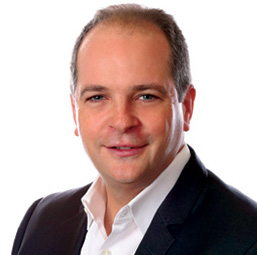ResMed benefits from up to $55M in incremental revenue
By Liz Beaulieu, Editor
Updated 11:21 AM CST, Fri January 28, 2022
 SAN DIEGO – Demand for CPAP devices is so high right now that, despite current supply chain constraints, ResMed was able to increase sales by double digits in the United States, Canada and Latin America for the second quarter in a row.
SAN DIEGO – Demand for CPAP devices is so high right now that, despite current supply chain constraints, ResMed was able to increase sales by double digits in the United States, Canada and Latin America for the second quarter in a row.
The company posted a 19% increase in sales for CPAP devices in the second quarter of its fiscal year 2022, on the back of a 40% increase in the first quarter, largely as a result of a competitor’s recall.
“In relation to the impact of our competitor’s recall, we estimate that we generated incremental device revenue in the range of $45 million to $55 million in the December quarter,” said Brett Sandercock, CFO, during a conference call on Jan. 27 to discuss the company’s latest financial results. “For the first half of our FY2022, this reflects incremental revenue in the range of $125 million to $145 million.”
ResMed officials have said they believe the recall, which Philips recently expanded to a total of about 5.2 million products and extended into the fourth quarter of this year, will result in incremental device revenue of $300 million to $350 million for its fiscal year 2022.
The company continues to work to mitigate supply chain constraints by, among other things, gaining access to additional supply, re-engineering designs and accelerating new product launches – efforts that will allow it to better meet increased demand later in the year, officials say.
“We said, ‘Look, we are not going to be able to just go back and ask for more supply; we know the supply chain constraints,’ and so we started reengineering components and parts,” said Mick Farrell, CEO. “We also started looking at our supply chain and analyzing different suppliers and revalidating and assuring that we could get them there. So, there's a bunch of projects going on – I run out of fingers looking at them. It gives me strong confidence to say in the June quarter, I think a bunch of these projects will free up supply and then you hit September and December and the projects that are going to get to market will get there. That's what gives us that confidence in that recovery.”
Additionally, ResMed has implemented a surcharge on all products and has discontinued discounts to mitigate the increased costs associated with supply chain constraints.
“Our customers have accepted it,” Farrell said. “The people running these companies go to the supermarket and see the price of milk. So, a surcharge from us, given the nature of this, has made sense.”
Given supply chain constraints and the recall, driving up demand for CPAP devices isn’t a priority in the short term, but ResMed officials say they’re putting the pieces in place to make it a priority in the long term by, among other things, acquiring Ectosense, a provider of home sleep testing, and partnering with CVS Health, which is selling the company’s CPAP masks through its HealthHUBs.
“We are innovating with partners and our customers to create an even more efficient and effective approach to sleep apnea patient identification, screening, diagnostics, treatment and management,” Farrell said. “We will continue to invest in technology that enables an end-to-end, seamless digital experience for patients.”
Comments